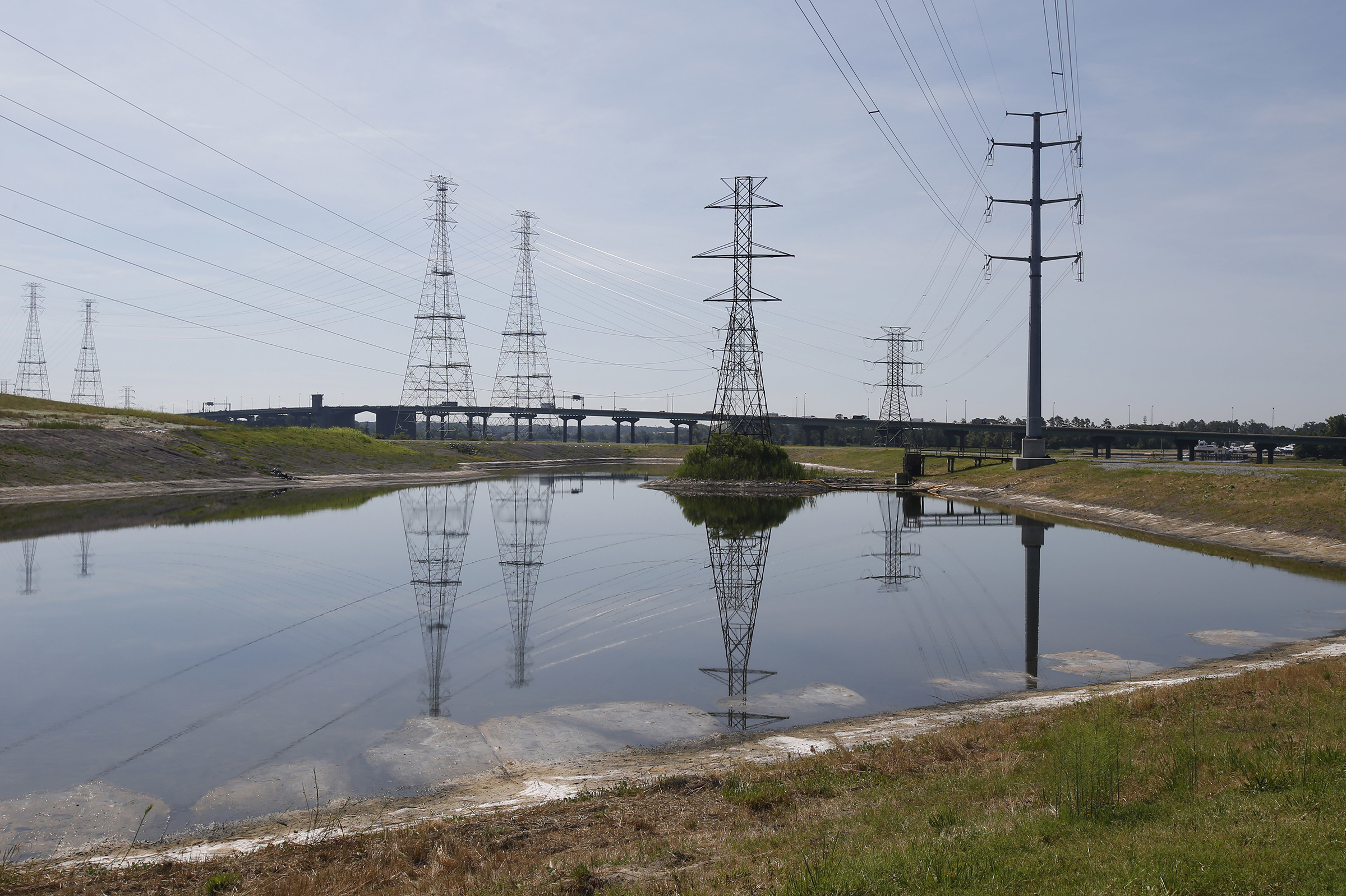In Georgia Water Report, Groups Call Attention To Coal Ash

Power lines tower over a coal ash pond from an abandoned coal fired power plant in Virginia. Georgia Power is closing all 29 of its coal ash ponds.
Steve Helber / Associated Press
Environmental groups are pushing for stricter regulations and new laws in Georgia to help protect the state’s waterways. In its annual “Dirty Dozen” report, the Georgia Water Coalition highlighted some of the biggest problems for clean water in Georgia, in the eyes of the advocates who work to protect it.
New concerns include a proposal for a titanium mine near the Okefenokee Swamp and the overturned cargo ship that leaked oil into the St. Simons Sound and remains stuck there. But there were also problems the groups have listed before.
“If this year’s report has a theme, it would be repeat offenders,” said Joe Cook with the Georgia River Network. “Seven of our dozen are making return appearances on this inauspicious list.”
Those include a pulp mill in Jesup and a superfund site near Brunswick.
Concerns about coal ash also came up again on this year’s list. Coal ash is a byproduct of burning coal for electricity, and how utilities clean it up has become a focus for environmental groups.
Georgia Power is closing all 29 of its coal ash ponds, excavating 19 of them, and closing the remaining 10 as they are.
But environmentalists are concerned about the process, the potential pollution coal ash has already caused, and how safe the clean-up plans are.
Jesse Demonbreun-Chapman, director of the Coosa River Basin Initiative, said Georgia Power has millions of tons of coal ash in pits along the Chattahoochee River.
“Leaving them in place risks catastrophic releases of coal ash to our rivers,” he said.
Demonbreun-Chapman said he’d like to see state environmental officials tighten regulations, and if they don’t, he said, state legislators should enact coal ash laws.
The state Environmental Protection Division is reviewing coal ash pond closure plans, according to a spokesman for the agency.
“Electric utilities must demonstrate that their proposed closure plans meet all the performance criteria established in the federal and state rule,” the EPD’s Kevin Chambers said in an email.
That includes minimizing or eliminating water getting into the closed coal ash storage and pollution leaching out of it.
An analysis released earlier this year by environmental groups found that some of Georgia Power’s plans might not meet those criteria.
A spokeswoman for Georgia Power said the company is in compliance with all state and federal regulations on coal ash.
“Georgia Power took early action to quickly and safely begin closing all of our ash ponds with our top priority being to protect water quality every step of the way,” Holly Crawford said in an email. “Monitoring is being conducted in compliance with federal and state laws and regulations. Based on the extensive data collected, the company has identified no risk to public health or drinking water.”
Georgia Power is asking the state Public Service Commission to build coal ash cleanup costs into customers’ bills as part of its case for a rate increase.
Demonbreun-Chapman said unless all the coal ash is dug up and moved to lined landfills, the PSC should not allow Georgia Power to charge those costs.
“If these closure plans are not protecting ratepayers who live around these plants, then we should not be forced to pay for a cleanup program that is destined to fail.”







